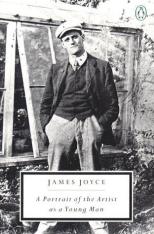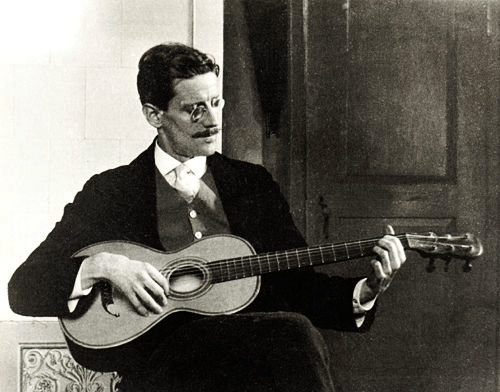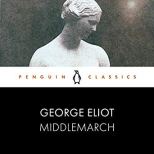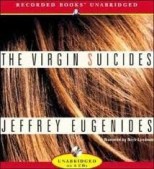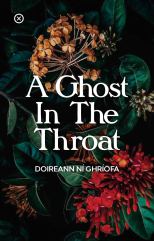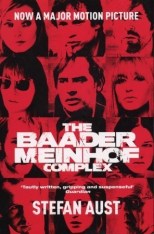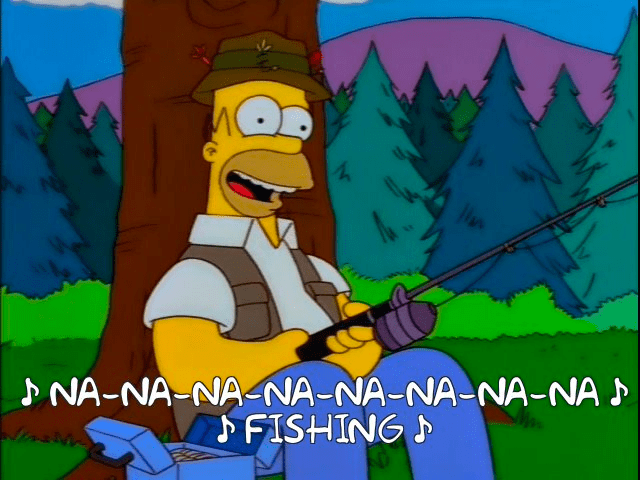Once again, it’s been a while since I wrote. Call it life. Call it work deadlines. Call it the second round of COVID-19 I’ve had this year. Regardless, slackness ensurs and so now I’m going to try to make up for it not by humbly begging your indulgence, but by putting together a bunch – a decet? – of book reviews that may be of interest.
I hope so, anyway.
A Portrait of the Artist as a Young Man by James Joyce.
My rating: four stars
My (likely to fail) attempt to read almost all of Joyce’s work this year continues! I have previously read Portrait as part of my degree, but I didn’t remember very much about it, nor had it particularly clicked with me the other times I had tried (and failed) to read it again.
This time was different! I suspect having an extra 20 years on the version of me that attempted this last time was the key, as some of the irritations I vaguely recalled have now eased into the background glow with a bit of maturity. (Put plainly, a lot of what pissed me off about Joyce stand-in Stephen Dedalus in earlier years were part of a younger man’s predilections, and I suppose it was a bit too close to the bone for me then.)
The thing about Portrait is that it’s remarkable and irritating in equal measure. But that’s the point, because young men (and old men, come to that) are remarkable and irritating, or just remarkably irritating. There’s a lot of DEEP THOUGHTS about IMPORTANT THINGS interrupted only by DEEPER THOUGHTS about ROOTING. But amongst all the fornication and the self-flagellation, there’s a proper sense of growth. This is about the development of Joyce, the artist, and in the transition from the third-person viewpoint to the first, by degrees, the moulding of the man is laid bare. His family, religion, sex, Irish identity, Irish politics, geography, the company of men (and the feeling that one does not fit into the company of men): all have a role to play in the formation of this bespectacled little perve who’d go on to write some of the most important books in the English language.
Welcome, O life! I go to encounter for the millionth time the reality of experience and to forge in the smithy of my soul the uncreated conscience of my race.
I guess I’m trying to say that yes, I get it now. And I appreciate it now. It’s still hard going – there’s only so far footnotes can get you once you get into the weeds of Irish nationalist politics, unless you were brought up with the topic – but the diamond of the mind behind the thing is remarkable to experience at work.
(The book’s essential to the apprehension of Ulysses, I think, and am interested to see how many echoed notes I pick up through my present reread of that gargantuan tome.)
The Disappearance of Adèle Bedeau by Graeme Macrae Burnet.
My rating: four stars
I previously read Burnet’s much-acclaimed His Bloody Project and loved it, so when this copy of his first novel drew my attention on a second-hand bookshop stroll, I thought I’d give it a go.
I didn’t know what to expect, other than a high attention to detail. Disappearance is very different to Project but it has a certain charm I can’t deny. It’s presented as a long-lost true-crime novel by a French writer with a mysterious life/death, and is largely a portrait of Saint Louis, a small French border village, with action centred around the Restaurant de la Cloche. Inside this restaurant, Manfred Baumann, the somewhat creepy protagonist, has an obsessive-compulsive approach to life and socialising. He also takes note of Adèle, a young waitress… who subsequently disappears.
Enter Georges Gorski, a gone-to-seed inspector who wants to solve the disappearance of the girl. What ensues is a highly literary whodunnit (whydunnit?) that touches on the pasts of both men. Manfred isn’t a reliable narrator – but is the inspector any better? The story plays out in a deeply slow (but never uninteresting) kind of way, with a lot of internal narrative and a lot of curled lip from the reader. There’s something skittering around beneath the pages that feels unwholesome in a way that was pretty thrilling to me. I don’t know what I had expected, but I was pleasantly surprised at the meniscus of ick found in here, and definitely want some more. (I’ll remain vague because spoilers.)
It turns out that this book is one of a trilogy: Burnet liked the sleepy French village setting so much that he wrote another work, The Accident on the A35, set there, too. There is another as-yet untitled work (due in 2024) that will complete the trio of books, and based on what I’ve read of Gorski’s world, I think I’ll make the effort to dive back in. Especially given that the Literary Review reckons the books are what you’d get if Roland Barthes had written a detective novel, which is a pretty good tag, really.
Middlemarch by George Eliot.
My rating: five stars
I had been meaning to read Middlemarch for literal decades, but never seemed to have enough of a head of steam up to get started. Two things finally made me cross it off the list: finding a decent audiobook version, and being part of a Buddy Read on TheStoryGraph with Elizabeth (whose booktube you should totally visit).
(The Buddy Read tool over there it pretty much what it sounds like: up to five people can read the same book and talk about it. Comments can be made at any time, but they’re linked to a percentage or page figure, and you can only see (and respond to) them when you’ve reached that point, thus circumventing spoilers. It’s neat, and if you fancy trying one out then give me a shout on there.)
Anyway, ignoring the physical and ebook copies of the book I had, I think the audiobook was the way to go. I always find that when there’s something I’d like to read in theory, having it read to me seems to break the logjam of “but do I have time for this? will I enjoy it?” questions I tend to get hung up on. I think the shadow that the book casts – it’s long been considered one of the best (and most accomplished) novels in English.
(Also it’s home to the line about being the son and heir of nothing in particular, so you know.)
It turns out that the raves were well deserved and once more I’m an idiot for not getting on board the Eliot train earlier. What’s presented here is a curiously modern novel (the fact it was published in the early 1870s notwithstanding) that aims to tell the story of provincial life. I didn’t understand going in that the novel wasn’t only going to be about Dorothea Brooke (though that’s who I’d been led to believe was key to the work) – it’s about a whole town, and how it fits into England and the wider world.
What unfolds is a combination of political and social commentary, excellent character sketching, and the teasing out of ideas about financial expectation, about the role of religion, belief and theoretical conviction, and about social station and success. Importantly, Eliot explores these ideas to discuss identity. How much of marriage – good or bad – is an influence on who you are? Should it be? How does what you do in your life impact your community – and does that matter? The concept of a small life being of supreme importance crops up here, and it’s something that hit the fuck yeah part of my brain hard.
Character is not cut in marble – it is not something solid and unalterable. It is something living and changing, and may become diseased as our bodies do.
I saw a review of the book saying that it’s bananas: you’ll be 750 pages in and then there’ll be another BUT WAIT! moment, and the plot is progressed further. That’s it. It’s absolutely masterful. I hadn’t expected to feel so deeply or be so impressed at the technique on display here, but Middlemarch is absolutely a fuckin’ banger, as the kids might say upon completion. If you haven’t read it, get onto it: I loved it.
The Virgin Suicides by Jeffrey Eugenides.
My rating: five stars
I’ve had a copy of this book on my shelves ever since I saw the Sofia Coppola adaptation of it. I guess it’s not ideal to encounter the story through that gauzy (yet beautiful) lens initially, as I had imagined the novel might seem a bit anaemic in comparison.
Thankfully, I was mistaken in this regard.
Again, this was a book I consumed as an audiobook, which enhanced the feeling of clueless confessional that’s inherent in the text. It’s a short tale, telling the story of the Lisbon siblings, five sisters who are doomed. As the title indicates, suicide features heavily, and the novel is an attempt of grown men to understand, years later, the reasons why the Lisbons choose to end their lives.
The key word here is attempt. Eugenides’ writing about the girls glows, a sort of sun-dappled portraiture even in the shadow of death. But the boys (and later, men) who are at the sidelines of what’s going on, trying to catch a peek (and cop a feel) are presenting them in this idealised way. They’re trying to examine an idea, not real people, and their cluelessness leaches out of every paragraph.
This is the sort of book that, when I thought I had pinned down what it meant to me, snakes away in a different direction. I still don’t want to make a distinct proclamation about it, other than to note that the writing is exceptional, and the story is piercing.
The Annual Banquet of the Gravediggers’ Guild by Mathias Enard (tr. Frank Wynne).
My rating: four stars
My first Enard! It’s not going to be my last, either, as the story told here – the travails of David Mazon, anthropology student (and a bit of a dickhead) – in the west France town of La Pierre-Saint-Christophe.
The village is located near the author’s birthplace of Niort, and is a loving (albeit tongue-in-cheek) representation of village life (and its difference to Paris, Mazon’s home). It’s also an examination of the Buddhist concept of reincarnation and the wheel of life, and an unpicking of the interconnections between characters and historical events.
There is a pretty basic story – obnoxious would-be anthropologist attempts to write something about a village to impress his supervisor – but the way it’s presented provides exquisite explanations of the ephemera of Mazon’s discoveries. You heard about someone marrying someone that killed someone? Oh, we’ll get an examination of that, potentially with textual linkages conveyed by a boar that once was a priest involved in the very fracas we’re talking about. It’s a patchwork of experience, flipping back and forward between the human and animal worlds, between the past and the present, between incredible seriousness and village-life farce.
It turns out Rabelais is pretty unintelligible; I understand fuck all.
(And then there’s the gravediggers’ shindig of the title. It’s quite the piss-up, and to reveal the philosophical concerns of their increasing indulgence… well, I’m not going to. But it’s a pretty funny look at life .)
Frank Wynne’s translation of this sprawling work is great. It proceeds smoothly, despite the jumps in time and space, and I never felt at a remove from the text. While I found the book primarily a funny one, there’s a lot to chew on. I’m sure I haven’t understood a lot of the references – Enard is writing about something very close to him, so there’s bound to be some secret byways in the text, decipherable by locals only – but the sense of ambition here is infectious.
A Ghost in the Throat by Doireann Ní Ghríofa.
My rating: five stars
I really don’t know how to write about this book. It’s a very short one, and I am painfully aware that I am not the target of it: it is very much a book written for women, and I felt almost as if I were a trespasser at times, such is the strength of the text.
The book is autobiographical and tells the story of Ghríofa’s life as a mother. There’s a lot about the endless work of being a parent: of snatched moments, of the unattainable completion of chores, and about the things needed to ensure sanity prevails. In the author’s case, it’s her love for a poem, the Caoineadh Airt Uí Laoghaire that provides secret moments of selfhood.
The poem is a lament, a keening for Eibhlín Dubh Ní Chonaill’s second husband, Art Ó Laoghaire. It’s an outpouring of love and grief following her husband’s murder, and while initially told in snippets, is something vibrant and brutally alive.
The poem is never far away. It pulses through Ghríofa’s days, pushing into her mind when there’s other – sometimes terrifying – things that should perhaps have focus. She works at translating the work into her own words (a translation included at the end of the work) and seeks out the reality of Eibhlín’s life to try and forge a sense of connection. The book reveals itself in quotidian fragments, with the feeling that Ghríofa’s emotions of the everyday are mirrored in the historic poem’s wails.
I make myself a life in which whenever I let myself sit, it is to emit pale syllables of milk, while sipping my own dark sustenance from ink.
This is a book about motherhood, about the bond children bring, and about the task of translation and its similarity to birth. It’s about struggling, about trying to make sense of one’s space, and about looking for linkages either with the present or the past. I am absolutely aware that I’m not the audience for the book, but I feel privileged to have been able to read it, so powerful is the writing within. If it sounds even remotely like your thing, give it a go: I am still thinking about it, off and on.
The Baader Meinhof Complex by Stefan Aust (tr. Anthea Bell).
My rating: three stars
Want to learn about 1970s German terrorism? About the Red Army Faction? To find out more than any sane person needed to know about objections in a lengthy court case and about making explosive devices?
Then you probably need to read this.
I’d heard of the RAF/Baader Meinhof when I was younger and, other than the Luke Haines project of the same name, I’d never really investigated further. I knew they were active around the time of the Munich hostage crisis, and that there was a hijacking involved, but I didn’t know much more than that.
Now, I know everything. Well, not exactly everything, but I have a much better handle on the philosophical aims behind the group (a combination of theoretical rigour and a propensity for big-noting violence, mainly) and the situation from which they emerged. It’s fascinating, but is a lot: I found it took me a while to get through this. It was always rewarding, but felt a bit like chewing cardboard at times.
Stefan Aust’s book is the work on the group. He has skin in the factional game, being directly connected to members of the group, and the edition I read was, I think, the most recent version of the work, containing recently disclosed information. To say he is meticulous would be an understatement, but there’s also a certain stolidity of prose that can be overwhelming.
The book formed the basis The Baader Meinhof Complex, a film about the group. It’s a little more easily digestible than the book, though you’ll get a lot more granular information if you take to the pages. If you’d like to watch, it’s on YouTube.
When the Monster Dies by Kate Pullinger.
My rating: three stars
This one was a spur-of-the-moment purchase in a Blue Mountains bookshop, driven largely by the fact that it was a) Picador, b) had a relatively interesting blurb and and c) had a neat cover illustration. It was only after I got it home that I noticed that the illustration was depicting Battersea Power Station, which probably says more about my misapprehension of detail than it does the lasting qualities of Halliday and Scott’s architecture.
Pullinger’s book is set in the shadow of the great Art Deco monolith, in the late 1980s. The station has been decommissioned, and the narrative focuses on inhabitants of Nine Elms and Vauxhall, living on the edge of society – squatters, artists, queer people. The story of down-at-heel suburbs and people barely making their way through life – surviving violent evictions, dumpster diving, and finding the embrace of community despite the mainstream’s dislike of these peoples’ version of it – is finely penned, and told without coddling or objectification. The book also speaks to colonisation: the people in focus are, largely, people from elsewhere: current or former parts of the Empire, upon which the sun did set, as the ’80s definitely underscored.
Then, of course, there’s a secretive art project with heavy stakes, the vicissitudes of love borne out of comfort, the struggles of the artist and, er, potential Roman time-travel.
The book doesn’t quite know what it wants to be, but I think that fits in well with the feelings of those from Commonwealth/ex-Empire nations when they arrive in London: here you are in the place that your culture was pretty much modelled on (particularly so, in Australian terms) and there’s just as many deadshits as there are back home. What if the Mother Country just turned out to be as dead-end as the place you thought you were escaping? Pullinger is a Canadian by birth, and it seems fitting that one of the main characters (and the only one, initially, with a job the squares would refer to as proper) is a Canadian who seeks to fend off loneliness, a lack of identity and dreams of drowning is by throwing himself into the world of fashion in an attempt to endlessly reinvent himself.
I guess the version of London inside here seemed familiar to me, even though my time in the city was decidedly less scungy. I loved the setting and the sensation of quiet panic that results from living in London if you’re anything other than unfathomably rich: it’s a slog, and the rewards are the people and the bonds made. The fact that it all took place near that joint from the Pink Floyd album cover was a bonus.

High charade you are.
Man, Fuck This House by Brian Asman.
My rating: three stars
So as you’d likely surmised, I bought this book entirely on the basis of its title. And I honestly had assumed – it was a cheap purchase from my occasional flits through horror – that it would remain unread, given that it would hardly be possible for the content to top the title.
(Snakes on a Plane is perhaps the ur-example of a piece of media where the enjoyment of its title is not surpassed by the experience of consuming the whole thing.)
Anyhow, my second dose of COVID came roaring in – most likely caught from a Morrissey (I know, LORD I know) show, where catching the spicy cough is probably the least serious of all possible Bad Infections on offer – and while on the couch I figured it was time to see if this would be another dose of reptile aviation or no.
I must admit that I found Asman’s prose a bit lacking from the beginning. The approach to the tale seemed a bit too knowing, the characters too stock. There’s the oblivious dad, the mother that wants more from her life, the snotty teenager and the creepy little boy named Damien. The number of eyerolls and creepy (or clueless) pronouncements felt rote, as did the setup for the actual haunting.
(I was also a bit pissy because the credits made heavy weather of thanking a subeditor, but Halley’s Comet was misspelled, so you can bet I was predisposed towards an eye twitch.)
Thankfully, the book improves. There’s a bit of borrowing from King’s works, and that one episode of Treehouse of Horror (you know the one), but it combines into something that ends differently to my presumptions. The text starts to pick up around the midway point, as developments in the house tend towards the more fucked-up, before becoming completely popcorn in the last third.
The title does get used in dialogue, and I admit I clapped when it turned up.
Despite my initial misgivings I was all in by the end of this tale, which adds new aspects to the standard haunted house tale. It is, at heart, a story about loss and about wanting to be loved that just happens to include a bunch of delightfully improbable violence. I expected disappointment and was happily surprised instead, which is pretty good for a book you can knock over in an hour or so.
Pictured: house book reviewer at work.
The Fisherman by John Langan.
My rating: five stars
I’d had this on the to-read list for a while, and another Buddy Read invitation ended up being the push I needed to make inroads. I’m still waiting to see how my reading partners come through this one, but I thought it was a fuckin’ cracker.
While this novel is a horror tale – and a Lovecraft-adjacent horror tale at that – it’s also home to some pretty fine writing on a) love, b) loss and c) fishing. Now I can’t claim to be an expert on the last one of those, but having been an Arts student Sad Boy, I am extremely well-versed in the previous two. (Even if it was mostly theoretical for the first one while actually at university.) I mention this because the YMMV part of this book is that part of it is the connection made by two Sad Boys over their grief (ameliorated by fishing, natch), and if you are not a Sad Boy you might find that a bit irritating.
(I like to think I’m a former Sad Boy not, thanks to a lot of reflection and psychotherapy, so while I still give it a pass, I can agree that if you’re not a Sad Boy, it could be INTENSELY FUCKING ANNOYING.)
Ahem. Anyway, the tone of phrase, the men-talkin’-with-men stuff, the laconic C&W-listening narrator’s tone? They’re golden. There’s a couple of stories-within-stories in the work, and there is some truly ghoulish stuff that is occasionally telegraphed but more often than not punches you in the nose. There’s a lot of oh fuck don’t go in there you idiot! moments and the combination of folklore, cosmic horror and homespun wisdom is odd but it just… works. I’m being infuriatingly vague about what happens because this was certainly a case where the less I knew about the book going in – Sad Boys, Lovecraft, stories within stories – improved my experience with it.
Human weakness and the way we paper over them is a key concern of the book, It’s melancholic and horrific by turns. It felt real, which is certainly an achievement given some of the less, uh, quotidian goings-on. It could be that I’m an easy mark, but I deeply enjoyed it
Well that’s it. Ten reviews! I really need to get more on the ball with writing these bloody things.
I guess you can consider this an early Christmas present, if you’re hard up for Christmas presents.
The next post here should be my end-of-year writeup. It’s always an overlong beast, so I hope you’ve got some couch time booked.
If you’re after some good bookish times, please check out my profile on TheStoryGraph.
If you’d like to buy me some books to review, there’s a wishlist over here.

